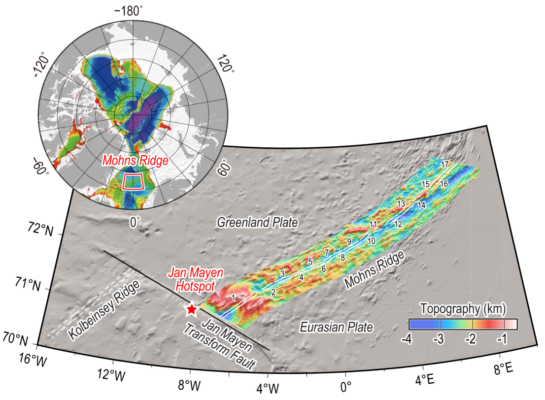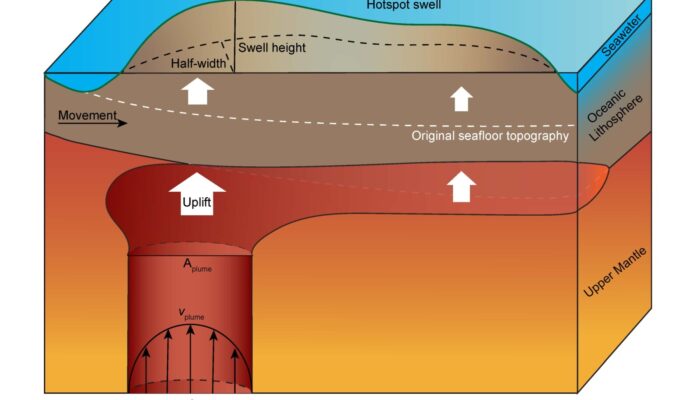Figure 1. Illustration of the hotspot swell and plume buoyancy flux. White dashed line shows the original seafloor topography due to half-space cooling. Dark green line represents the surface dynamic topography caused by the dynamic uplift of the plume. One of the main surface expressions of dynamic topography are hotpot swells formed by mantle plumes. In this week’s post, Ziqi Ma, PhD candi ...[Read More]
What’s the role of hotspot and oceanic transform faults at ultraslow spreading ridge?

Mid-ocean ridges (MOR) and hotspots are two types of magmatic activity occurring in the ocean. The MORs are typically associated with another tectonic feature—oceanic transform faults. While numerous studies have focused on the interactions within MORs, hotspots, and transform faults, there has been limited research on cases where a hotspot and a transform fault are located at the same end ...[Read More]
Seriously, science?
This week, Cédric Thieulot, Assistant Professor at The Department of Earth Science, in Utrecht, shows that there is no place for humor in peer reviewed scientific publications. Science is serious. It’s about experiments, theory, analysis, and for most of this readership maths, physics, chemistry, biology, geology and so much more. It’s serious business, with funding, promotion, titles, grants and ...[Read More]
And the solution to your lock-down-related sadness is…
Cooking of course! Let me explain. This week, instead of doing his job, Antoine Rozel (senior researcher in ETH Zürich), shows that all your life problems will instantly disappear if you start cooking. Warning, this introductory paragraph is not going to cheer you up, skip it if you are already feeling blue unless you want to suffer a little more (that’s OK). Clearly the explosion of number ...[Read More]



